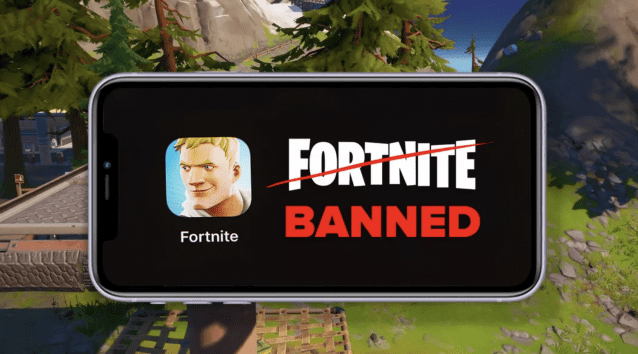
Epic Games was removed from the Apple App Store and Google Play Store in August of last year. This is because the popular game Fortnite promoted its own payment method.
This action Separate payment The reason for the exit was that it violated the operating guidelines of the App Store, which prohibited the promotion and use of tools.
The amendment to the’HB2005′ law passed by the Arizona State House on the 3rd (local time) focuses on banning this practice. It should ensure that developers are free to use their preferred payment method.
Apple Can’t Block Legislation Despite Strong Opposition Lobby
The App Fairness Federation, which sponsored the’HB2005′ legislative work, commented, “Today Arizona is the first state in the United States to advance into a free and fair digital market.”
The App Fairness Alliance is an organization that includes Epic Games, which is suing Apple, as well as Match Group, the parent company of Tinder, and Spotify, which is also suing Apple in Europe.
On the other hand, Apple conducted a strong lobbying campaign to prevent the passage of the law, but it did not achieve its intention.
Kyle Andyer, who oversees external cooperation at Apple, attended the Arizona House of Representatives and stressed that the App Store is providing value to developers.
According to The Verge, Andy argued, “Some describe app store fees as’transaction processing costs’, which is wrong.” He argued, “Apple is providing tremendous value to developers by distributing apps around the world,” he said. “The in-app payment fee reflects that.”

In particular, Andy emphasized that if a law in the Arizona State House goes into effect, Apple will not be able to receive commissions from the app stores it has built, which will allow billionaire developers to take full advantage of the app store’s value for free.
A similar law has been proposed in North Dakota before being rejected by Congress. As such, considerable attention has been paid to the decision of the Arizona House of Representatives.
Both Arizona and North Dakota are focusing on’forcing the ban on in-app payments’.
However, the law attempted in North Dakota stipulated more comprehensively, requiring platform operators to allow third-party app stores as well.
On the other hand, Arizona has enforced a ban on in-app payments for apps with more than 1 million downloads. In fact, it is a corporation focused on Google and Apple.
The law also applies to developers and app store users in Arizona. It also contains rules that prohibit retaliation between Apple and Google against developers who opt for third-party payment systems.
It is not clear whether the final decision is made… Great achievements just by drawing attention to public opinion
There is still a long way to go before Arizona’s mandatory prohibition of in-app payments comes into effect. After passing in the House and in the Senate, Arizona Governor Duck Dusey must sign.
It is of interest to what extent it can be effective as much as individual state-level legislation. It is questionable that developers living outside of Arizona may be subject to the law if they sell apps to Arizona users.
US IT media The Verge said, “Even in this case, it is not clear whether Google and Apple’s in-app payment fees will be avoided.”
Nonetheless, the Arizona State House’s legislation is expected to play a major role in raising the issue of in-app payments. It is said that the effect of attracting attention to the’forced in-app payment’ problem is not less than the actual ripple effect.
The US Congress is also busy. The U.S. House of Representatives attracted attention last October when a report that uncovered the monopoly problem of a giant IT company was released.

The antitrust subcommittee under the House Judiciary Committee released a 450-page “Investigation of competition in digital market” report after 16 months of investigation. This report, which focused on the business practices of Google, Apple, Amazon, and Facebook, also cited the app store monopoly as one of the important issues.
In-app payment is expected to be a key issue in the lawsuit between Epic Games and Apple, which will begin in early May. In August of last year, Epic was expelled from the App Store while promoting its own payment method within the Fortnite app. Epic argues that Apple’s practice is considered anti-competitive behavior.
Related Articles

Arizona State House of Representatives Passes’In-App Payment Compulsory Prohibition Act’

Apple’s all-round lobbying for’in-app payment sticky’ in the U.S.

Apple-Epic in-app payment lawsuit begins on May 3rd

“You can’t force in-app payment”… U.S. Promote Prohibited Laws One After Another
Arizona is far from high-tech in the United States. The cactus and desert are famous.
However, through this legislation, Arizona is receiving hot attention from the IT industry not only in the United States, but also around the world. Epic Games and others, who sponsored the revised work of’HB2005′, are evaluated to have achieved great achievements in this regard alone.
